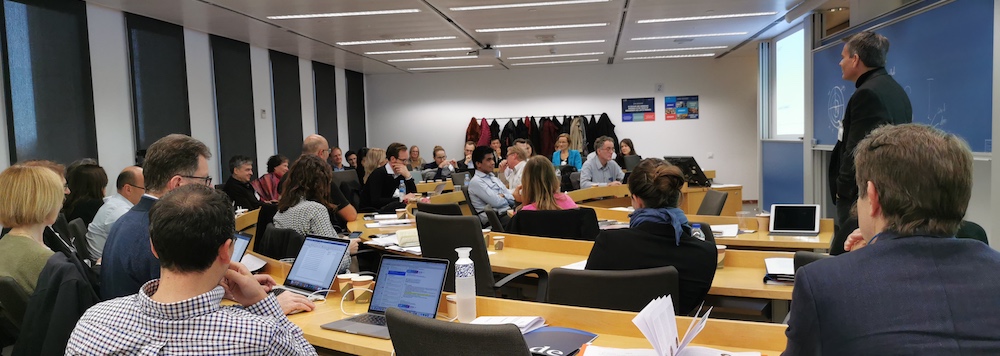On November 27-28, 2019, Esade hosted an invited workshop on the “Socio-Economic Impact of Big Science Research: New Theories, Models and Measures.” The purpose of the event was to bring together a focused group of researchers, policymakers, and managers of Europe’s leading scientific research infrastructures to debate issues concerning how to evaluate the greater, holistic value that research infrastructures provide to society.
The workshop attendees included a healthy mix of academics and representatives of some of the world’s most formidable scientific organizations, including: CERN, European Southern Observatory, European Synchrotron Radiation Facility, European Molecular Biology Laboratory, European Spallation Source, Fusion for Energy-ITER, and Lawrence Berkeley National Laboratory. The 2-day workshop offered heated debates and focused presentations that represented a variety of positions and levels of analysis.Research on the socio-economic impact of large-scale scientific research programs is well established. From the middle of the 20th century, publicly funded investments in nuclear research and space exploration were largely justified by the milieu of the Second and Cold Wars. Scientific policy was crafted around a belief that significant investments in basic and applied science where unambiguously beneficial for national security, economic prosperity, and geopolitical stability. As the Cold War dissipated and geopolitical interpretations grew increasingly complex, critics and advocates of carte-blanche investments in scientific research infrastructures demanded a more sophisticated and holistic understanding of its value. In response, researchers in this domain have explored various factors that can be crudely categorized as:
- the socio-economic impact of pure science
- the economic spillovers from the construction and operation of scientific infrastructures
- the serendipitous derivatives (spin-offs) from the scientific outcomes, processes, and infrastructures
- knowledge spillovers, capacity building, education and outreach, and cultural enrichment
The goal of the workshop was to make a preliminary mapping of a series of studies on socio-economic value to be completed in the coming phase 2 of ATTRACT. The aim was to acknowledge the progress made by existing research traditions while simultaneously stimulating novel thinking to understand the holistic impacts of big scientific research agendas. Towards this goal, the workshop explored 1) novel methods, tools, and approaches to measure the accountability of scientific research infrastructures, and 2) normative policies and platforms to engage new actors or contributors in the innovation ecosystems surrounding research infrastructures.
The socio-economic research program will be coordinated with Esade, inviting interested scholars through a series of dedicated workshops and set milestone events. Active participation of early-stage Ph.D. students will also be encouraged and supported, inviting them to visit and study different ATTRACT project partners. The total expected person-effort is estimated at 15 person-years.
CONTACT
Scholars interested in participating in studies of the socio-economic impacts of scientific research infrastructures are welcome to contact Prof. Jonathan Wareham at Esade for additional information| jonathan.wareham@esade.edu
More information
ATTRACT is a pioneering initiative bringing together Europe’s fundamental research and industrial communities to lead the next generation of detection and imaging technologies. Funded by the European Union’s Horizon 2020 programme under grant agreement No 777222, the project aims to help revamp Europe’s economy and improve people’s lives by creating products, services, companies and jobs.
LINKS


